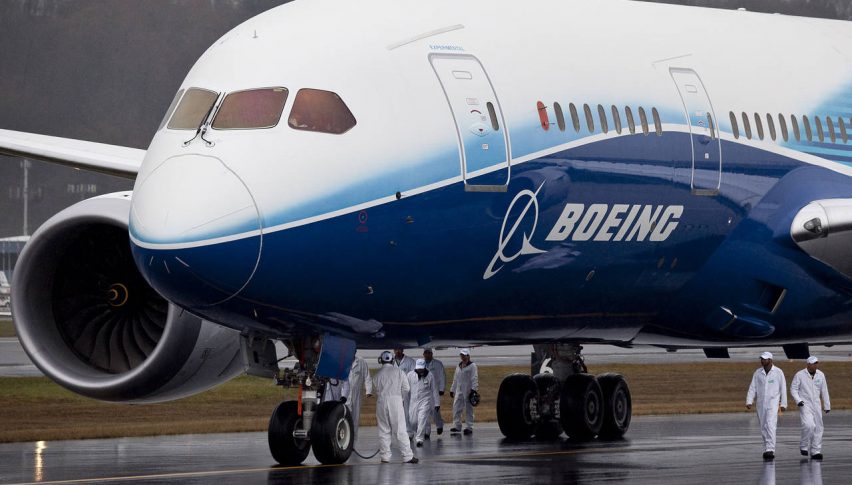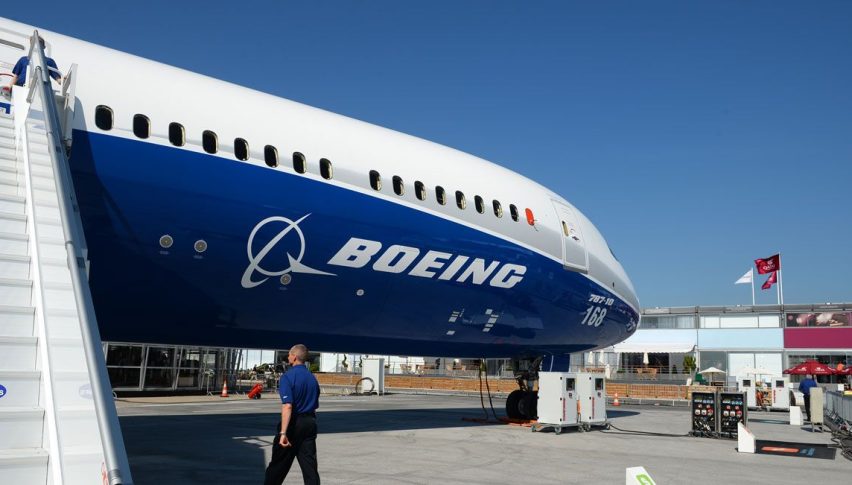Boeing BA Stock Skydives—Strong Q2 Can’t Offset Labor Woes or Production Delay
Market confidence was harmed by labor disputes, certification problems, and manufacturing delays, even though Boeing's Q2 performance was...

Quick overview
- Boeing reported better-than-expected Q2 results with revenue of $22.7 billion, but investor sentiment was dampened by production delays and labor tensions.
- Significant delays in aircraft certification for key models, including the 777-9 and 737 MAX variants, are now expected until 2026.
- Despite a strong commercial backlog of $522 billion, concerns over labor stability and production issues have led to a sharp decline in Boeing's stock.
- The company's core loss of $1.24 per share was better than forecasts, but operational challenges overshadowed the positive earnings report.
Market confidence was harmed by labor disputes, certification problems, and manufacturing delays, even though Boeing’s Q2 performance was better than anticipated.
Revenue Beat Fails to Lift Sentiment
Boeing posted strong second-quarter financial results, with revenue reaching $22.7 billion—topping Wall Street estimates—and reporting a smaller-than-feared core loss of $1.24 per share. Despite these positive figures, investor enthusiasm was quickly eclipsed by updates that pointed to deeper structural challenges within the company.
BA Stock Chart Monthly – The 100 SMA Rejected the Upside Move
Aircraft Certification Delayed to 2026
The company announced a significant delay in certification for several key aircraft models, including the 777-9 as well as the 737 MAX 7 and 10 variants. These programs are now not expected to be certified until 2026, pushing out timelines and dampening near-term delivery expectations. This delay represents a serious hurdle for Boeing’s recovery strategy and undercut the optimism generated by its earnings beat.
Stock Reverses Sharply on Heavy Selling
Boeing’s stock initially rose in pre-market trading, opening the U.S. session at $239.50—$3 higher—but the early optimism faded quickly. Shares failed to hold above the 100-day moving average on the monthly chart and closed the session sharply lower at $226.08, marking a drop of more than 5%. The move was especially notable for a stock that rarely swings more than 5% in a single session.
Boeing Q2 Earnings Report Financial Highlights
Revenue Surge: Boeing’s revenue rose 35% year-over-year to $22.7 billion, driven by strength across commercial and defense segments.
Earnings Beat: The company posted a core loss per share of $1.24, which came in better than analysts had forecast.
Cash Flow: Free cash flow usage totaled $200 million during the quarter, reflecting ongoing investments and operational challenges.
Segment Performance
BCA (Commercial Airplanes): Revenue came in at $10.9 billion, but margins remained under pressure due to ongoing production issues and the continued delay in 737 MAX 10 certification.
BDS (Defense, Space & Security): Revenue rose 10% year-over-year to $6.6 billion, contributing positively to the top-line expansion.
BGS (Global Services): The segment delivered $5.3 billion in revenue, marking an 8% year-over-year increase.
Backlog and Production Outlook
Robust Commercial Backlog: Boeing reported a massive commercial backlog of $522 billion, including more than 5,900 aircraft orders—a sign of sustained long-term demand.
737 MAX Challenges Persist: Delays in FAA certification and negative BCA margins remain a drag on near-term profitability and investor sentiment.
Labor Tensions Add to Investor Concerns
Weighing further, investors reacted negatively to news that a proposed labor agreement had been rejected by workers, raising the specter of production-halting strikes. While Boeing has seen improved aircraft delivery numbers, these gains were overshadowed by mounting uncertainty around labor stability and future output.
Conclusion: Boeing’s solid financial performance in the second quarter was ultimately overshadowed by operational and labor-related challenges. With crucial aircraft programs now delayed until 2026 and labor unrest brewing, investor confidence remains shaky. The sharp post-earnings decline in the stock reflects growing skepticism about Boeing’s near-term execution, despite a strong demand environment and a robust order book.
- Check out our free forex signals
- Follow the top economic events on FX Leaders economic calendar
- Trade better, discover more Forex Trading Strategies
- Open a FREE Trading Account




